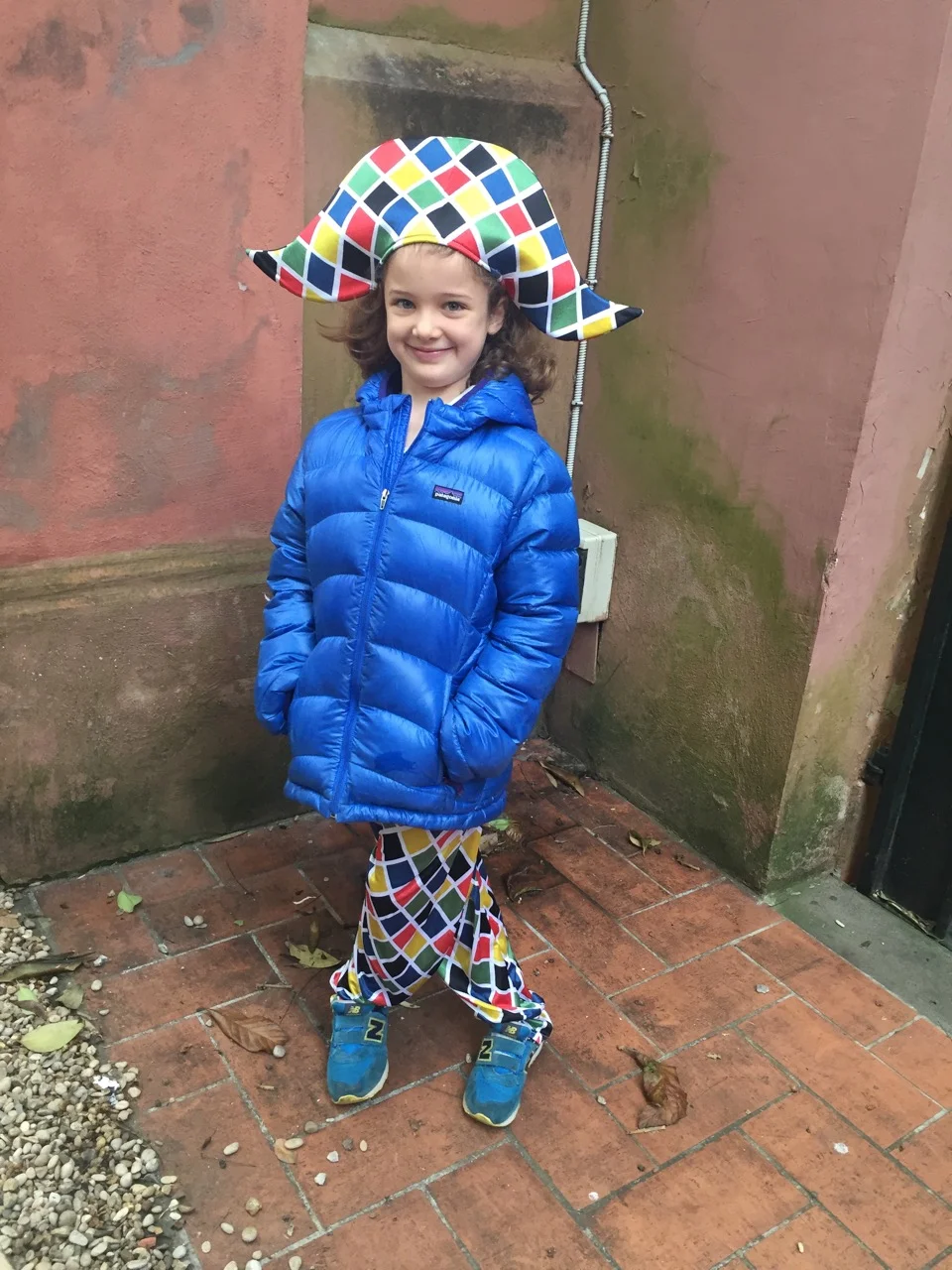PIANO, PIANO AL PIANOFORTE
In Italy today, whatever is other -- or, not Italian, but foreign -- is coveted and cool. But is it necessarily better?
Of all our Roman friends, we are the only family sending children to the public, Italian school. Everyone else has their child enrolled in the French, German, Swiss, British or American school. Romans want their children to speak another language, and they seem convinced that English, French or German is only going to be learned at a foreign school in Rome as a toddler or on a foreign-exchange program overseas as a teenager. On the basis of what I hear among Romans my age when they speak English today, I believe it. And as much as I want to think that this handicap in the Italian curriculum is changing, my son's report of the second grade English being taught in his class is discouraging. However, shouldn't there be value in mastering Italian at the local level? Why shirk one of the remaining strong institutions of Italy when it's free and around the corner?
I also see this thirst for seeking expertise beyond the merits of this highly-cultured country in all the extra-curricular activities offered for children here. Comments I have heard among Roman parents lately range from: Have you heard about the ceramics class you can do on a French lady's terrace under a pergola? You'll feel as if you're in Provence! What about the swim lessons at the Olympic-sized pool? The Russian coach trains kids as if they were to qualify for the Winter Games. And what about English lessons with the Oxford octogenarian at the British Institute? Sure to guarantee an authentic British accent.
Having only lived here for two months, I've fallen prey to this mentality myself: my five-year-old daughter is now taking piano lessons in Rome from a Japanese musician specialized in the Susuki method. But I can't help but think I should be finding the students of Maurizio Pollini to teach her instead.
The Susuki teacher came recommended to me from a musician-friend whose seven-year-old son shows promise as a pianist. My daughter heard him practicing one afternoon when she was playing at his house, and a star was aching to be born. She asked me for piano lessons with the same teacher, ever hopeful that her cacophonous clanking might turn into classical chords.
"Suona figo," said the little boy's Roman father, grinning as he used the double-entendre to explain that not only does it "sound cool" to have a Japanese piano teacher in Rome but it also ensures that his son knows how to "play it cool" or "play well."
What exactly is the Susuki method? Invented in the aftermath of World War II, it was created during an age when displaced foreigners struggling to learn new languages in foreign countries found that music seemed to come easier than a romance language if absorbed properly in one's environment. Studies have since shown that those exposed to music at a preschool age pick it up faster and with enthusiasm. The idea is that if they can pick up a foreign language at an early age then learning music should come just as naturally.
How is a Susuki teacher different than an average piano teacher of children? Parents must sit in on lessons, take notes, and insist on daily practices, following the instruction taken from a lesson. From what I've seen, there's no small talk and no nonsense. Wiggling isn't condoned -- neither are floor fits. Nothing is considered cute, and a bow plus an expression of gratitude towards the teacher is expected at the start and finish of each lesson. (This doesn't go over too well with my daughter.) Manners are mandatory.
My daughter's teacher is tough but no more stubborn than my daughter. Together they are two bulls with their antlers locked, each quieter with the other as their frustrations increase. The practice sessions I have with my daughter have caused both of us to walk out on each other -- both of us sequestered to time out. My Lamaze classes prior to her birth trained me for these moments.
Yet something is working. And Sofia is drawn towards the piano where she now willingly plays on her own. She may rebel with me when she has to practice on her own but she is an obedient solider who performs once seated next to her militant maestro. (The softness of Italy does seep into her lessons despite the strict instruction as "twinkle, twinkle little star" is to be practiced with culinary substitutes: "pattatine fritte, pattatine fritte, etc." In learning the ABA of a song or the moment when the bridge section arrives, she is to declare whether it's "pane" or "prosciutto.")
Is this instruction better than an Italian piano teacher? Who knows. But I'm the first to admit that I seem to be falling into the mixed formula that Romans are using to raise their children: a little bit of this culture with a little bit of that culture makes a well-rounded, international child.
Or, does it?



